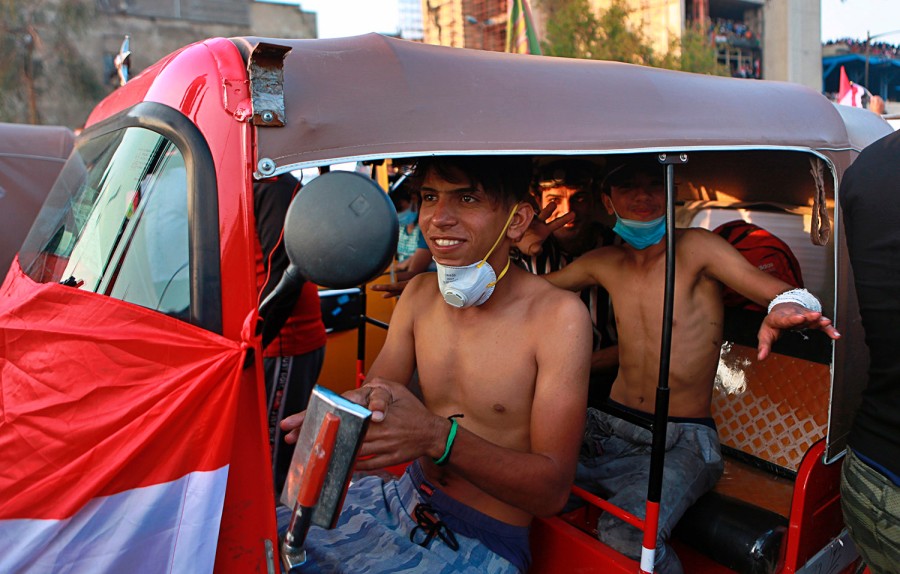
BAGHDAD (Reuters) — “If you kill us all, who will you rule over?” says the latest issue of Tuktuk newspaper, produced, printed and distributed by Iraqi anti-government activists to thousands of protesters camped out in Baghdad’s Tahrir Square.
The front cover features images of flag-waving demonstrators defying a crackdown by authorities after weeks of deadly unrest that has shaken the country out of two years of relative calm following the defeat of Islamic State.
The newspaper, named after the three-wheeled motorcycles that have become a symbol of Iraq’s protests for ferrying wounded demonstrators to makeshift medical tents, is less than a month old.
Tuktuk started as an attempt to circumvent an information blackout by authorities who shut down the internet for weeks on end, and to crystallize the demands of protests that have swept Baghdad and southern Iraq.
Activists with a background in online news publishing are behind the project. They write the articles, edit the paper, print it in local printing shops and distribute some 2,000 copies to protest camps in Baghdad several times a week.
The newspaper features articles written by local activists and translations of international media reports about Iraq.
Protesters hand around copies of Tuktuk at Tahrir Square, the main protest camp in the capital.
“It’s great, it’s some of the only accurate news we see. We don’t know exactly where it’s written and printed, which is probably best for the editors to avoid arrest,” one demonstrator who only gave his name as Hussein, said as he read a copy.
Unidentified gunmen last month raided the offices of local and regional media outlets over coverage of the protests. Iraq’s leaders condemned attacks on the media but the perpetrators have not been identified.
CARRY ON PUBLISHING
Since the start of the unrest, more than 300 people have been killed in clashes with security forces who have used live ammunition, tear gas and stun grenades to quell the protests.
“We can’t rely on state media,” Majed said.
On days when Iraqi security forces have been clashing with protesters, state television has reported calm in Baghdad and broadcast government statements that barely mention the unrest.
The protests, which began on Oct. 1 in Baghdad and quickly spread through southern Iraq, broke out over lack of jobs and services.
They now demand the removal of a political elite seen as corrupt and puppets of Iraq’s two main allies, Iran and the United States. The mass protests are the biggest challenge to the political order that emerged after a U.S.-led invasion toppled dictator Saddam Hussein in 2003.
Prime Minister Adel Abdul Mahdi’s government has promised reform including more jobs for graduates, holding corrupt officials to account, electoral changes and an early vote.
Protesters and the editors of Tuktuk say those reforms do not go far enough as they would keep the current crop of Iraqi officials in power. They plan to keep protesting and publishing.
“We’ll carry on printing until the demands of the revolution are met,” Majed said.
Reporting by John Davison and Hamuda Hassan; Editing by Emelia Sithole-Matarise
Image: Volunteer tuk-tuk drivers prepare to evacuate wounded anti-government protesters during ongoing protests in Baghdad, Iraq, on Wednesday, Oct. 30 (KHALID MOHAMMED/AP)




